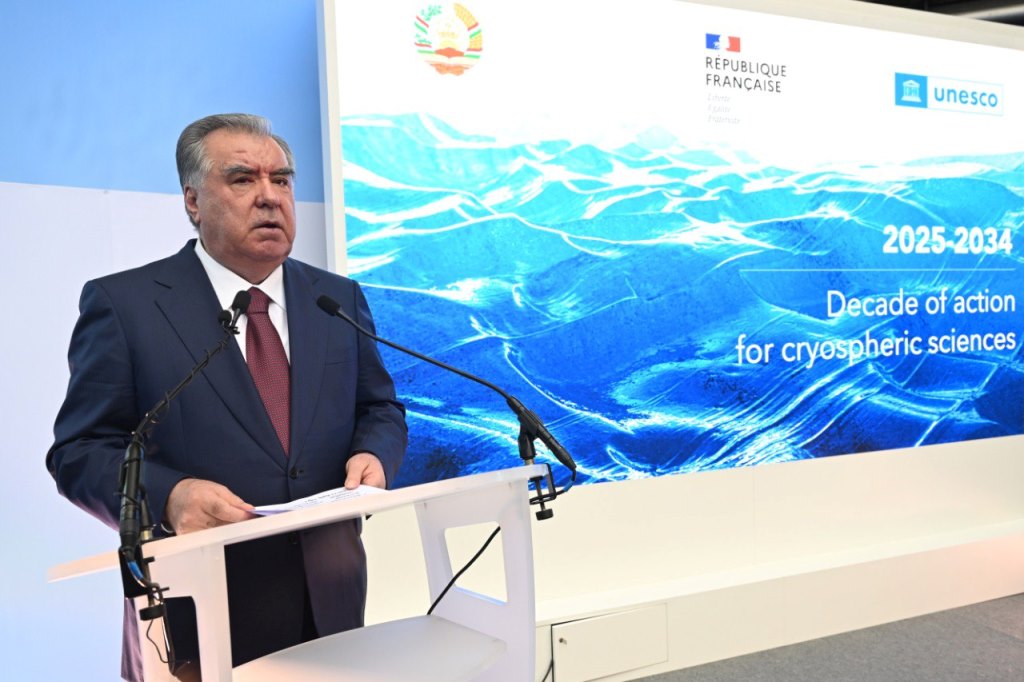On June 8, the President of Tajikistan, Emomali Rahmon, arrived in the city of Nice, France, on a working visit.
As it is posted on Emomali Rahmon’s X, formally Twitter: At the Côte d'Azur International Airport in Nice, the President of the Republic of Tajikistan was warmly welcomed by high-ranking representatives of France.
On the same day, Tajik leader participated in and delivered a speech at the Third United Nations Conference on Ocean and the launch ceremony of the International Decade for Cryospheric Sciences, 2025-2034.
The Tajik president’s official website says Emomali Rahmon has been invited to these international events as the leader of an initiative and a pioneer state in global water and climate affairs by the leadership of France and UNESCO.
In his statement, Emomali Rahmon, in particular, reflected on the alarming situation of climate change, its impact on the environment, the unprecedented melting of glaciers, the shortage of drinking water, Tajikistan's global initiatives to address these problems, and put forward a number of proposals.
It was emphasized that up to 60 percent of Central Asian glaciers are located in the mountains of Tajikistan, playing a key role in the development of all sectors and the sustainable future of the region.
Highlighting the specific measures taken by Tajikistan to address climate change issues and maintain environmental sustainability, Tajik leader noted that Tajikistan has been successfully advancing the water and climate agenda on the global stage for the past 20 years.
It was noted with satisfaction that the proposal of Tajikistan and France to declare 2025-2034 as the “Decade of Action for Cryosphere Sciences” was supported by the international community.
According to the Tajik president, the adoption of the resolution of the United Nations General Assembly on this issue clearly confirmed the importance of preserving glaciers and strengthening science and research in the field of the cryosphere.
During his speech, Emomali Rahmon also drew the attention of the participants of the event to the issues of the unprecedented reduction of the cryosphere.
It was noted that the process of reduction of the cryosphere poses a serious threat to the sustainable livelihoods of the people of the planet and may significantly affect one billion people living in coastal regions and island countries by 2050.
At the same time, the Head of our state, Emomali Rahmon emphasized that given the importance of glaciers and in order to accurately study the impact of climate change on them, “we have decided to establish a Regional Coordination Center for Glaciation in Dushanbe, in cooperation with international partners.”
In his closing remarks, the president of Tajikistan called on the international community to expand cooperation to protect the cryosphere and strengthen cryospheric sciences at all levels.
The third United Nations Ocean Conference, within the framework of which the high-level event to launch the Decade of Action for Cryospheric Sciences, 2025-2034 is held, has been attended by heads of state and government from 65 countries, UN Secretary-General António Guterres, and leaders of a number of other international and regional organizations.






